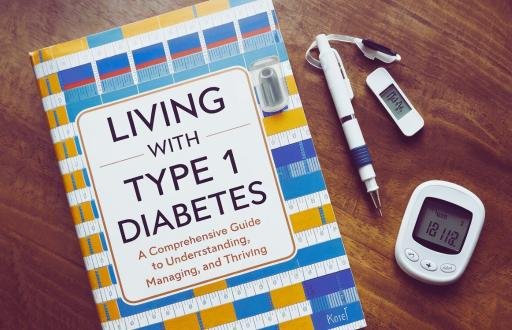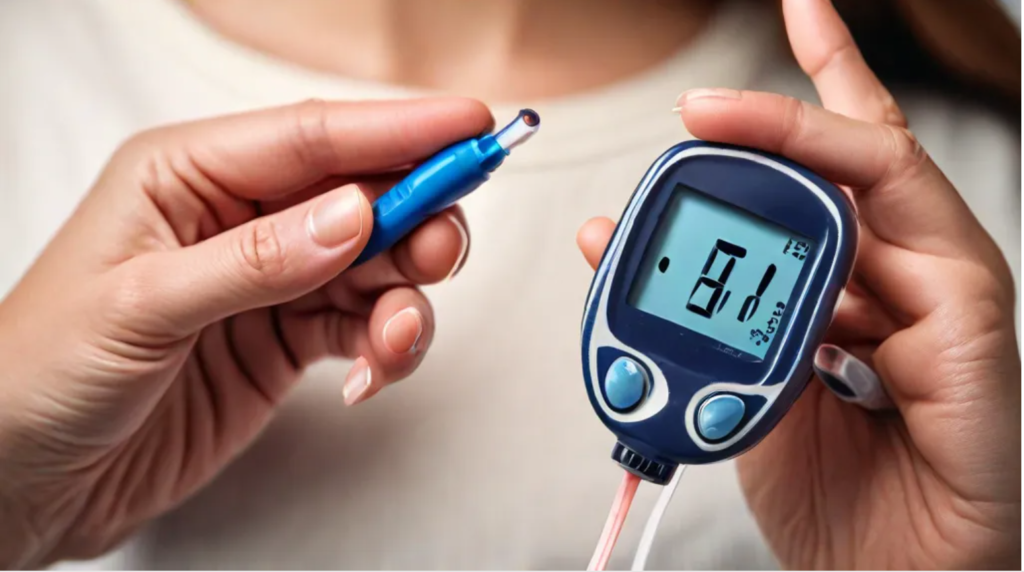Living with Type 1 diabetes presents unique challenges. This detailed guide will help you navigate this complex health condition. We’ll dive deep into understanding, managing, and thriving with Type 1 diabetes.
What is Type 1 Diabetes?
Type 1 diabetes is an autoimmune condition that changes how your body works. Your pancreas stops making insulin completely. This means your body can’t control blood sugar naturally. Unlike Type 2 diabetes, this type isn’t linked to lifestyle choices.
The Science Behind Type 1 Diabetes
Imagine your body as a complex machine. In Type 1 diabetes, the immune system becomes confused. It attacks the insulin-producing cells in the pancreas. These special cells, called beta cells, get destroyed. Without these cells, your body can’t make insulin.
Identifying the Signs Early
Recognizing diabetes symptoms can save lives. Parents and individuals should watch for these warning signs:
- Extreme thirst that won’t go away
- Frequent bathroom trips
- Unexpected weight loss
- Constant feeling of tiredness
- Blurry or changing vision
- Slow healing of cuts or wounds
- Mood swings and irritability
- Hunger even after eating
Causes and Risk Factors
Scientists are still exploring why Type 1 diabetes happens. Current research points to several potential triggers:
- Genetic predisposition
- Environmental factors
- Viral infections
- Family history
- Autoimmune system irregularities
Diagnosis Process
Doctors use several tests to diagnose Type 1 diabetes:
- Blood glucose level tests
- Glycated hemoglobin (A1C) test
- Insulin and c-peptide level checks
- Autoantibody tests
- Random blood sugar screening
Fitness and Diabetes Management
Physical activity plays a crucial role in managing diabetes. Exercise helps control blood sugar and improves overall health.
Exercise Benefits for Diabetes
- Improves insulin sensitivity
- Helps maintain healthy weight
- Reduces stress
- Boosts mental health
- Increases energy levels
Safety Tips for Exercising
- Always check blood sugar before workouts
- Stay hydrated
- Start with light activities
- Carry emergency snacks
- Wear a medical alert bracelet
- Monitor blood sugar during and after exercise
Daily Management Strategies
Successful diabetes management requires a comprehensive approach:
Blood Sugar Monitoring
- Use continuous glucose monitors
- Test blood sugar 4-6 times daily
- Keep detailed tracking logs
- Understand your blood sugar patterns
Insulin Management
- Learn proper insulin injection techniques
- Use insulin pumps or pens
- Follow doctor’s prescribed insulin plan
- Adjust insulin based on food and activity
Nutrition and Diet
Eating right is crucial for diabetes management:
Recommended Foods
- Lean proteins
- Whole grains
- Fresh vegetables
- Fruits with low glycemic index
- Healthy fats
Foods to Limit
- Processed sugars
- White bread
- Sugary drinks
- High-carb snacks
- Excessive fatty foods
Technological Advancements
Modern technology is changing diabetes care:
- Smart insulin pumps
- Continuous glucose monitors
- Mobile health tracking apps
- Artificial pancreas systems
- Bluetooth-enabled diabetes devices
Emotional and Mental Health
Living with Type 1 diabetes impacts mental well-being:
- Join support groups
- Talk to counselors
- Connect with other diabetics
- Practice stress-management techniques
- Be kind to yourself
Long-Term Management and Complications
Understanding potential complications helps prevention:
- Regular eye check-ups
- Foot care
- Kidney function tests
- Heart health monitoring
- Nerve damage prevention
Conclusionon of diabetes
Type 1 diabetes is a journey of management and adaptation. With the right knowledge, support, and attitude, individuals can lead full, active lives. Stay informed, stay positive, and prioritize your health.
Frequently Asked Questions
Q: At what age is Type 1 diabetes typically diagnosed?
Most cases are found in children and young adults, but it can happen at any age.
Q: Can Type 1 diabetes be prevented?
Currently, there’s no known prevention method. Research is ongoing.
Q: How often should I see my doctor?
Most experts recommend quarterly check-ups with an endocrinologist.
Q: Are there any famous people with Type 1 diabetes?
Yes! Many athletes and celebrities manage Type 1 diabetes successfully.
Q: What’s the difference between Type 1 and Type 2 diabetes?
Type 1 is an autoimmune condition where the body stops making insulin. Type 2 involves insulin resistance.
Q: Can people with Type 1 diabetes have children?
Absolutely! With proper medical care, people with Type 1 diabetes can have healthy pregnancies.
Q: How expensive is diabetes management?
Costs vary. Insurance, technology, and individual needs impact expenses.









